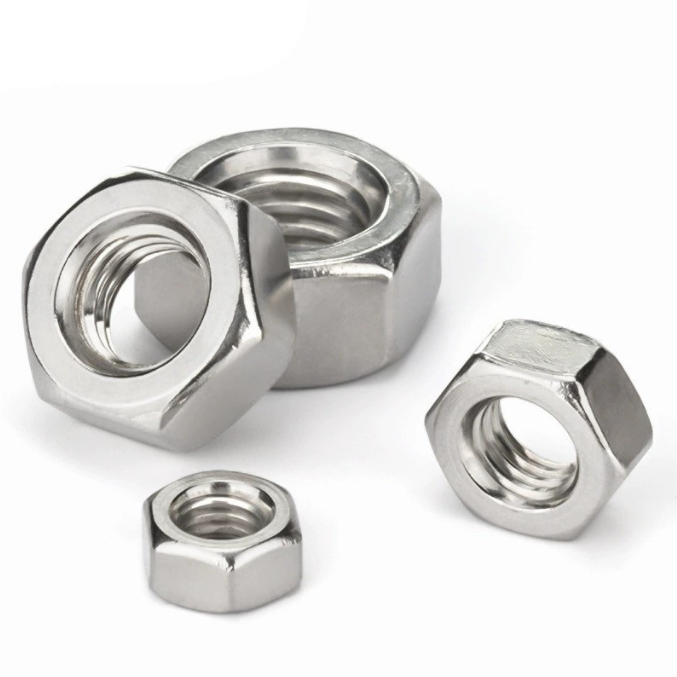

Understanding the Applications and Varieties of Machine Bolts in Engineering Projects
अक्टूबर . 22, 2024 04:31 Back to list
Understanding the Applications and Varieties of Machine Bolts in Engineering Projects
Understanding Machine Bolts The Backbone of Mechanical Assembly
Machine bolts are fundamental components used in a diverse range of industries, serving as critical fasteners that provide structural integrity and secure fittings in mechanical assemblies. These metal fasteners are designed to hold together various machine parts and play a pivotal role in engineering and manufacturing processes. Understanding the types, applications, and characteristics of machine bolts is essential for anyone involved in mechanical design or assembly.
Types of Machine Bolts
Machine bolts come in various types, each designed for specific applications and environments. The most common types include
1. Hex Bolts These are the most widely used machine bolts, characterized by a hexagonal head and a straight shank. They can be used with a nut or in a tapped hole.
2. Carriage Bolts Featuring a rounded head and a square neck, carriage bolts are often used in wood applications as they prevent the bolt from turning while tightening the nut.
3. Shoulder Bolts These bolts have a smooth, unthreaded shoulder that allows for rotation, making them ideal for pivot applications.
4. Lag Bolts Also known as lag screws, these are heavy-duty bolts with a large diameter and coarse threads, commonly used in wood applications.
5. U-Bolts Shaped like the letter U, these bolts are used to secure round objects or to anchor components to a surface.
Applications of Machine Bolts
Machine bolts find their use in a myriad of applications across various sectors, including but not limited to
- Automotive Industry Machine bolts are essential in assembling vehicles, securing engine components, and ensuring the overall structural stability of the chassis.
- Construction In construction, bolts are used to connect steel beams, secure metal structures, and attach fixtures, playing a crucial role in structural integrity.
- Aerospace The aerospace industry relies heavily on machine bolts, which must meet stringent safety and reliability standards due to the critical nature of aircraft structures
.machine bolts

- Manufacturing In manufacturing settings, machine bolts are essential for assembling machines, fixtures, and equipment.
Material and Strength Considerations
The material used for machine bolts directly influences their strength and suitability for different applications. Common materials include
- Carbon Steel This is the most widely used material for machine bolts due to its excellent strength and versatility. They can be treated for enhanced corrosion resistance.
- Stainless Steel Stainless steel bolts are ideal for environments prone to moisture and corrosion. They maintain strength and appearance over time, making them suitable for outdoor applications.
- Alloy Steel For high-stress applications, alloy steel bolts offer improved strength and hardness, often used in heavy machinery and structural applications.
The strength of a bolt is typically determined by its grade, which indicates its tensile strength. Higher-grade bolts, such as grade 8, are capable of withstanding higher loads and stress and are typically used in critical applications.
Installation and Maintenance
Proper installation of machine bolts is crucial to ensure their performance. Here are some best practices
- Use the Correct Torque Always refer to the manufacturer's specifications for the correct torque settings to prevent over-tightening or under-tightening.
- Ensure Proper Alignment Misalignment can lead to stress concentration on the bolt, reducing its effectiveness and increasing the risk of failure.
- Inspect Regularly Regular maintenance checks can help identify wear or damage, such as corrosion or thread degradation, allowing for early intervention.
Conclusion
Machine bolts are more than just simple fasteners; they serve as the backbone of mechanical assemblies across various industries. Their importance cannot be overstated, as they ensure the structural integrity and safety of countless applications. By understanding the different types of machine bolts and their appropriate uses, as well as adhering to best practices in installation and maintenance, engineers and technicians can ensure that their mechanical assemblies perform reliably and efficiently. Whether in automotive assembly lines, construction sites, or aerospace manufacturing, machine bolts will continue to play a vital role in the world of engineering.
Latest news
-
Premium Fasteners Manufacturer | AI-Driven Solutions
NewsAug.01,2025
-
Hot Dip Galvanized Bolts - Hebei Longze | High Strength, Corrosion Resistance
NewsAug.01,2025
-
High-Strength Hot Dip Galvanized Bolts - LongZe | Corrosion Resistance, Custom Sizes
NewsAug.01,2025
-
Best Self Tapping Screws for Drywall - Fast & Secure Installation
NewsJul.31,2025
-
High-Strength Hot Dip Galvanized Bolts-Hebei Longze|Corrosion Resistance&Customization
NewsJul.31,2025
-
Hot Dip Galvanized Bolts-Hebei Longze Metal Products|Corrosion Resistance&High Strength
NewsJul.31,2025

